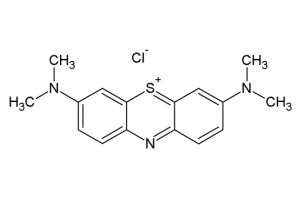Methylene blue : A brain function enhancer
Methylene blue : A brain function enhancer

The human brain, a complex and dynamic organ, is central to our existence, controlling thoughts, memories, emotions, touch, motor skills, vision, breathing, temperature, hunger, and every process that regulates our body. Yet, despite its paramount importance, the brain’s function can deteriorate due to a variety of factors like below.




The brain’s high demand for energy means that even slight disruptions in mitochondrial function can have profound effects on cognitive abilities, mood, and overall brain health. Mitochondria not only provide the energy necessary for brain cells to function but also play a key role in neuronal survival, differentiation, and neuroplasticity.



https://www.ncbi.nlm.nih.gov/pmc/articles/PMC6915996/
4. Energy Metabolism Review (Cellular and Molecular Neurobiology) : Reviews how methylene blue enhances mitochondrial respiration, supporting brain energy metabolism.
These studies underscore methylene blue’s promising potential in enhancing brain health through various mechanisms, including cognitive enhancement, neuroprotection, and improved energy metabolism.


We encourage anyone looking to improve their cognitive function, whether you’re a student, entrepreneur, homemaker, or simply interested in maintaining brain health, to consider the potential of methylene blue. Remember, choosing a high-quality product like SOMA Methylene Blue is crucial for ensuring safety and efficacy. Always consult with a healthcare professional before beginning any new supplement, especially if you have existing health conditions or are taking medications.
Leave a Reply